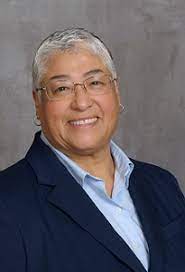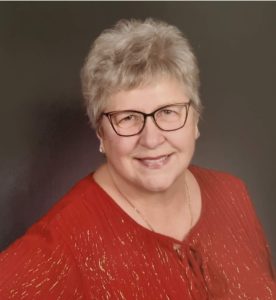Democrats led an effort on Thursday to block a bill that would lock the state’s Medicaid program in place with the idea of letting the next governor have more control over the health care plan for the less affluent.
Democratic state Rep. Susan Ruiz of Shawnee successfully got the House health committee to put the bill on hold until she can get an attorney general’s opinion about the proposal with lawmakers raising numerous questions about how it affects services.

“There have been several things very concerning to me and I’ve been open about that,” Ruiz told the health committee.
“One of the things that I’m really concerned about is the legality behind all this with the procurement process,” she said.
As introduced, the bill prevented the state health department from making any “substantive or material change” to the $4 billion-a-year KanCare program until Jan. 1, 2026.
The bill would have required the state health department to negotiate and extend contracts with the three managed care organizations that administer the program through Dec. 31, 2025.
Republican state Rep. Brenda Landwehr, chair of the health committee, had proposed shortening that time period to Dec. 31, 2024, or a one-year extension.
The goal of the bill was to give the next governor – possibly Republican Attorney General Derek Schmidt – the ability to enter into new KanCare contracts.
Landwehr said the bill would give a potentially new administration the chance to be involved in negotiating the KanCare contracts if it assumes office next January.
The current contracts expire at the end of 2023, and requests for new proposals are expected to go out later this year, right at about election time.
The proposals lay out the blue print for what the new KanCare program will look like in the coming years.

Yet, Democrats on the committee voiced concern that the bill would essentially hand over no-bid contracts to the three managed care companies that administer the program.
The state expects to solicit proposals for companies to bid on the program later this year.
“We’re actually passing a law that would give a no-bid contract to the MCOs even if it’s just for one year,” said Democratic state Rep. Kathy Wolfe Moore of Kansas City.
“I have to wonder what procurement rules we’re violating. I don’t even know if this is legal. I certainly am not going to sign my name to a one-year extension, no-bid contract,” she said.
“That causes me great concern,” she said.
The letter, signed by Ruiz, Wolfe Moore and two other Democrats on the health committee, outlines the lawmakers’ concerns about the bill.
They say the extension would “remove the current MCOs from a clear and transparent procurement process and eliminate competition for major contracts with the state of Kansas,” the letter states.
“It is unclear who requested this legislation,” the letter states.
“However, it has been made very clear from certain legislators that the intent is to block the procurement process and give these companies special treatment and eliminate all competition.”
The bill has stirred a lot of attention, primarily because it lacked any proponents and how it affects services for 500,000 Kansas who depend on the program.

“I’m still struggling with the real reason for this bill,” Wolfe Moore said. “No one seems to be for it. The agency isn’t raising the alarm that we need to do something. It’s the Legislature. It will be a no-bid contract that the Legislature is engaging in.
“It looks and it smells bad.”
Sarah Fertig, the state’s Medicaid director, had opposed the bill because of its overall lack of clarity.
She had previously questioned whether the law barred the Medicaid program from adding new drugs that come online and if it would keep the state from covering new and emerging treatments.
She added that she was afraid the law could prevent the state from increasing provider reimbursement rates for various services, including one serving new mothers with pre- and postnatal care.
She added that the bill – as it was originally written – could prevent the state from making changes to the Medicaid program as required by federal laws and rules and potentially cost the state hundreds of million in federal funds.
A new amendment offered on Thursday was intended to address Fertig’s concerns by allowing the state health department to respond to any demands imposed by the Centers for Medicare and Medicaid Services or any federal law.
The amendment also would have required state Medicaid administrators to get approval from the Legislative Coordinating Council for changes to the Medicaid program before Jan. 1, 2025.
Yet the amendment didn’t put Fertig at ease.
“Some of the confusion that existed with the prior version of the bill prior to this amendment are still there,” Fertig said.
“It’s still not clear to us what’s considered a substantive or material change,” she said.
“We make something I consider a substantive or a material change almost every day in the program,” she said.
“Our concern is that it would delay or possibly even block some of those very routine changes that we make all the time,” she said.
Fertig said there are all sorts of changes that are made on a daily basis that could force the agency before the Legislative Coordinating Council.
“We make pivots all the time,” she said. “In essence, it would delay a system that currently works very smoothly. Our concern is this would break what is not broken and cause unnecessary delays.”
Landwehr said she thought the LCC would be responsive to the agency’s requests..
“I have a lot of faith in our LCC,” Landwehr said. “It is legislators that are on there. If they see a need, they’re going to take and address it.”
Republican state Rep. John Barker of Abilene also expressed faith in the LCC.
“When we have an emergency, I am always amazed how fast we can come together,” Barker said. “I am very comfortable with the Legislature doing that.”
Democratic state Rep. Christina Haswood of Lawrence directly asked Fertig how the bill would affect services for those counting on Medicaid.
Fertig noted that the agency needed the flexibility to address problems as they arise and make new therapies available to beneficiaries as they emerge.
“If we have to wait to get the OK from the Legislature or the LCC every time, what that’s going to do is delay fixes we would like to have,” she said.
Wolfe Moore asked how the bill affects the agency’s ability to address any “bad actors” who are providing Medicaid services.
Fertig said the since the latest amendment to the bill extends the KanCare contracts with the managed care companies through the end of 2024, the agency would be limited in its response.
“It kind of forecloses the nuclear option,” she said.
“If we truly had a bad actor and we needed to threaten termination, that would be less of a threat really because by law we would have to continue the contracts.”













